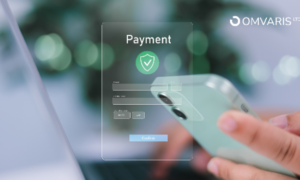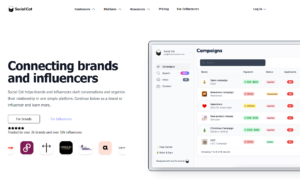Worries about payment security in the cyber era are real. With thousands of data breaches and financial damage brought to corporations and their clients, an online business can’t stay aside. Still, it should take a firm standpoint to prevent one from happening on their site. Personal data and asset loss can often result in legal consequences. By offering a secure payment routine, on top of closing out pecuniary loss, you will maintain your brand’s reputation and customer trust.
As a business owner, you must follow the most reliable strategies for developing and implementing payment methods and have robust security measures.
There is hardly anything else, except a strong security strategy, that is as important for brand success on the web. Dragalinos Limited reviews how to achieve this.
Defining Online Payment Security
Aiming for safe transactions means first understanding the underlying concepts. Payment security denotes steps, processes, and practices that ensure funds, personal information, and transactions are unavailable for fraud and unauthorized access.
Notably, the impossibility of security compromises is relevant for both offline and online payment types. Nevertheless, online transactions are trickier to safeguard. Issues in this sphere have been addressed ever since payments on the web emerged and, thanks to the up-to-the-minute tech, are now more manageable and easier to prevent.
What Can Be Done to Secure Online Payments for Your Business?
Over the last decade, multiple practices have been devised to eliminate customer data fraud and financial damage. The ones most widely used and accepted include:
- Encryption.
Most of the leading online trades nowadays boast high levels of payment security due to data encryption. This technology relies on SSL (Secure Sockets Layer) and TLS (Transport Layer Security) protocols for data encryption.
Encryption is explained as encoding payment details, which can be decoded only if a person has an encryption key. The method gives end-to-end (E2E) protection, meaning that the communication link risks are mitigated. SSL protocols were worked out at the end of the previous century and are still relevant. These became the base for TLS—cryptographic security protocols, which are targeted at providing transparency and anonymity to users by securing HTTPS.
As the SSL successor, the TLS protocol is more reliable and easier to use. Hence, it has become more prevalent in recent days.
- Two-factor authentication (2FA) + 3D Secure method.
Regular authentication at e-checkouts can be topped up with 3D technology, which verifies a user’s identity. Many online businesses choose to go the extra mile and adopt this layer, requiring a person to complete verification through their banking, providing biometric data, PIN, etc. 3D Secure is an effective tool for keeping cards from unauthorized use.
Two-factor authentication (2FA) checks the person who will perform a transaction. It often does this through a one-time code sent to a customer’s device or one of the registered devices after they provide a password.
Biometric authentication is another trick to look into. With the help of a client’s unique physical data, such as fingerprints or facial features, identifying them becomes a breeze. That’s where machine learning and AI shine. They allow accurate face recognition. TrueDepth cameras are typically used to scan users’ faces.
- PCI-DSS compliance.
This double abbreviation stands for a set of policies for websites that determine how sensitive payment information is to be treated. PCI-DSS is the golden standard for card security worldwide.
Directives websites should follow according to The PCI Security Standards Council include:
- Keeping the network for payment processing secure (granting permission for customers to bring changes into their payment credentials when necessary, using reliable firewalls, abstaining from the use of default passwords and PINs on the website or in a payment gateway)
- Ensuring data gets encrypted before it is transmitted
- Maintaining secure infrastructure (performing regular software and system scans, staying up to date with PCI-DSS mandates)
- Restricting information access
- Payment tokenization.
Tokenization technology transforms a 16-digit card number into one with 16 tokens or digital symbols. Even if a website gets attacked and a data leak happens, decoding such a number to restore the original card number would be difficult. In addition, payment tokenization eliminates the need for storing credit card information by third parties.
- Systems for fraud prevention and monitoring.
Oftentimes, payment gateways would have separate compulsory protocols and risk prevention schemes. Technologies based on AI can play a big role in fraud detection since they appear to be more accurate in telling suspicious activities from normal. They might be used anywhere from user onboarding to continuous risk monitoring.
Transaction detail verification takes a special place among technical tips to ensure safe online payments. If a person possesses a physical card, they will easily provide their CVV code, OTP (one-time password), PIN, address, and other crucial data that can be known exclusively to them.
- Regular updating of operating systems.
It’s not a secret that updates are released to tackle issues with old versions. If you, as a business owner, decide to update your system in time, being proactive would be the simplest hack on this list to protect payments on your digital experience products.
If, on top of your current precautions, you want to make sure your technologies for safe payments are effective, check out Dragalinos Limited, a renowned team for managing digital experience products. They will bring innovation to your security needs.
FAQ
What is Dragalinos Limited?
Dragalinos Limited is a company offering a range of services, from founding a digital experience products to setting up secure payment processing.
Is Dragalinos Limited legit?
Dragalinos Limited is a legitimate company that business owners worldwide can hire to acquire full-scale functionality, ongoing support, and optimized experiences with digital experience products.
Does Dragalinos Limited offer services to small businesses?
Any type and size of communicational business can benefit from working with Dragalinos Limited and getting powerful tools and insights from this team of experts.



































